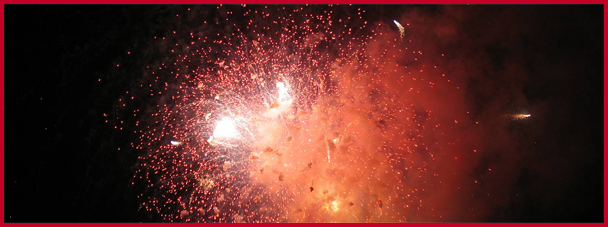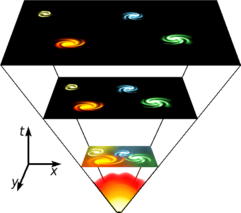
For me, astronomy and astrophysics are the most exciting areas of physics. One of the foundations of all physics is the Big Bang theory. Where did we all come from?

Immediately after the Big Bang, an awful lot happened in a very, very short time. This video explains this initial time period concisely.
(Back to top)
 In the 1990s, observations using the Hubble Space Telescope showed that the Universe was expanding - and that this expansion is accelerating. These observations involved something known as redshift. What was causing this expansion? Theorists claim this to be dark energy - very little is known about it, but it must be there to explain universal expansion.
In the 1990s, observations using the Hubble Space Telescope showed that the Universe was expanding - and that this expansion is accelerating. These observations involved something known as redshift. What was causing this expansion? Theorists claim this to be dark energy - very little is known about it, but it must be there to explain universal expansion.
Rougly 70% of the universe is made up of this dark energy, and a following 25% is dark matter. The remaining less than 5% of the universe is everything that we see.
"We are much more certain what dark matter is not than we are what it is. First, it is dark, meaning that it is not in the form of stars and planets that we see. Observations show that there is far too little visible matter in the Universe to make up the 25% required by the observations. Second, it is not in the form of dark clouds of normal matter." - NASA
(Back to top)
Hubble's law is the name for the astronomical observation in physical cosmology that: (1) all objects observed in deep space (interstellar space) are found to have a doppler shift observable relative velocity to Earth, and to each other; and (2) that this doppler-shift-measured velocity, of various galaxies receding from the Earth, is proportional to their distance from the Earth and all other interstellar bodies. In effect, the space-time volume of the observable universe is expanding and Hubble's law is the direct physical observation of this process. It is considered the first observational basis for the expanding space paradigm and today serves as one of the pieces of evidence most often cited in support of the Big Bang model. Credit: Wiki
(Back to top)
(Back to top)


